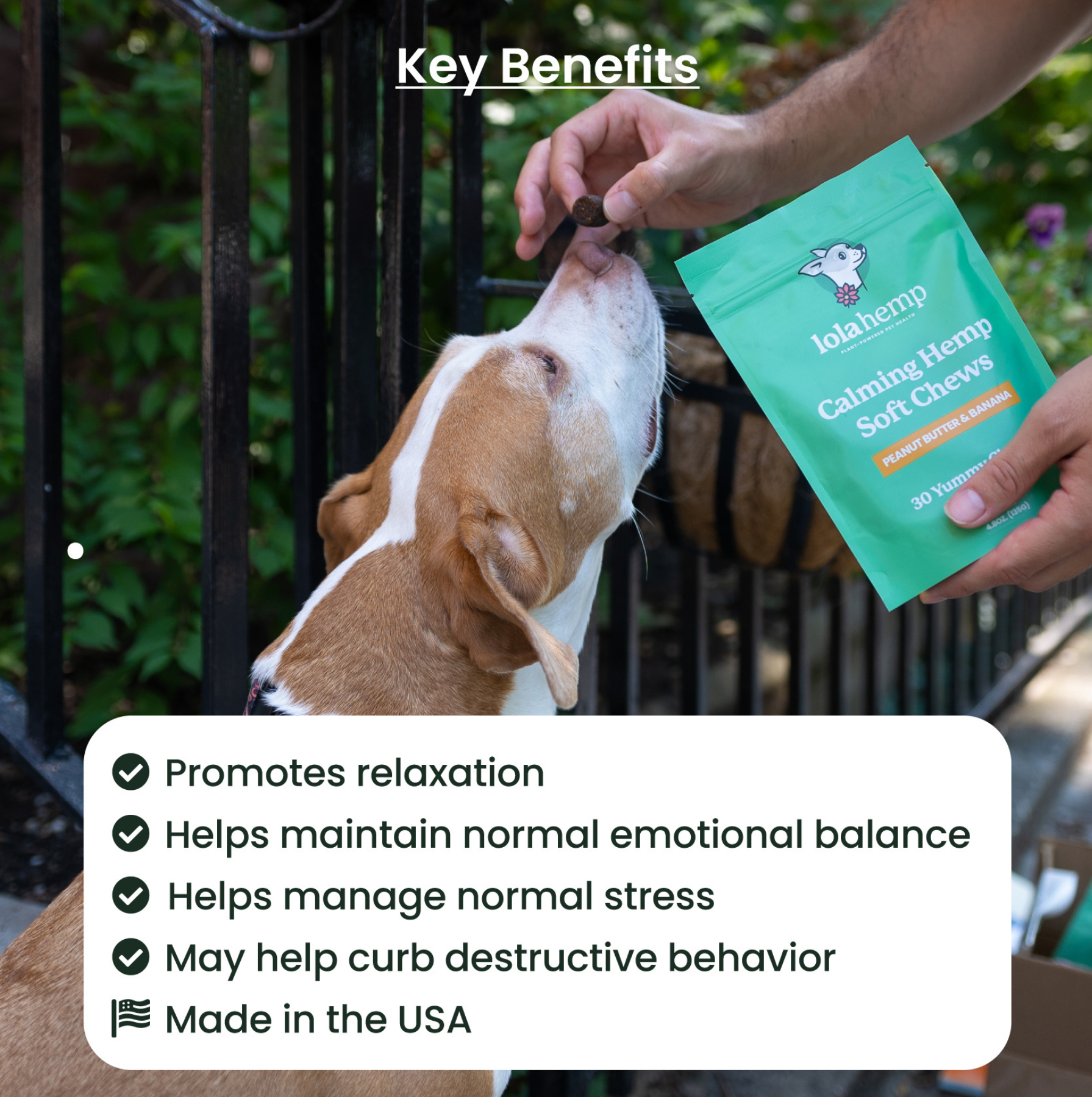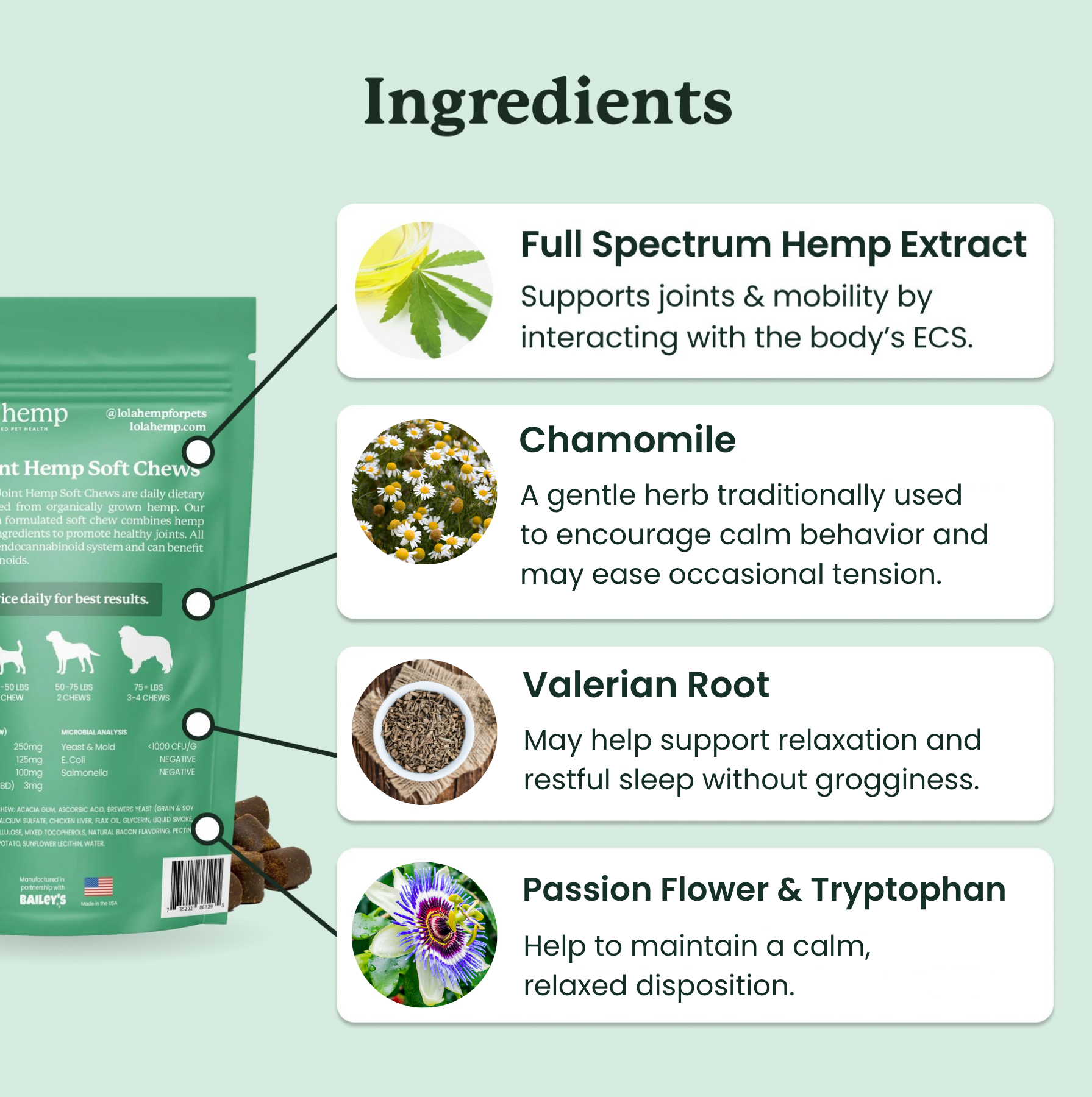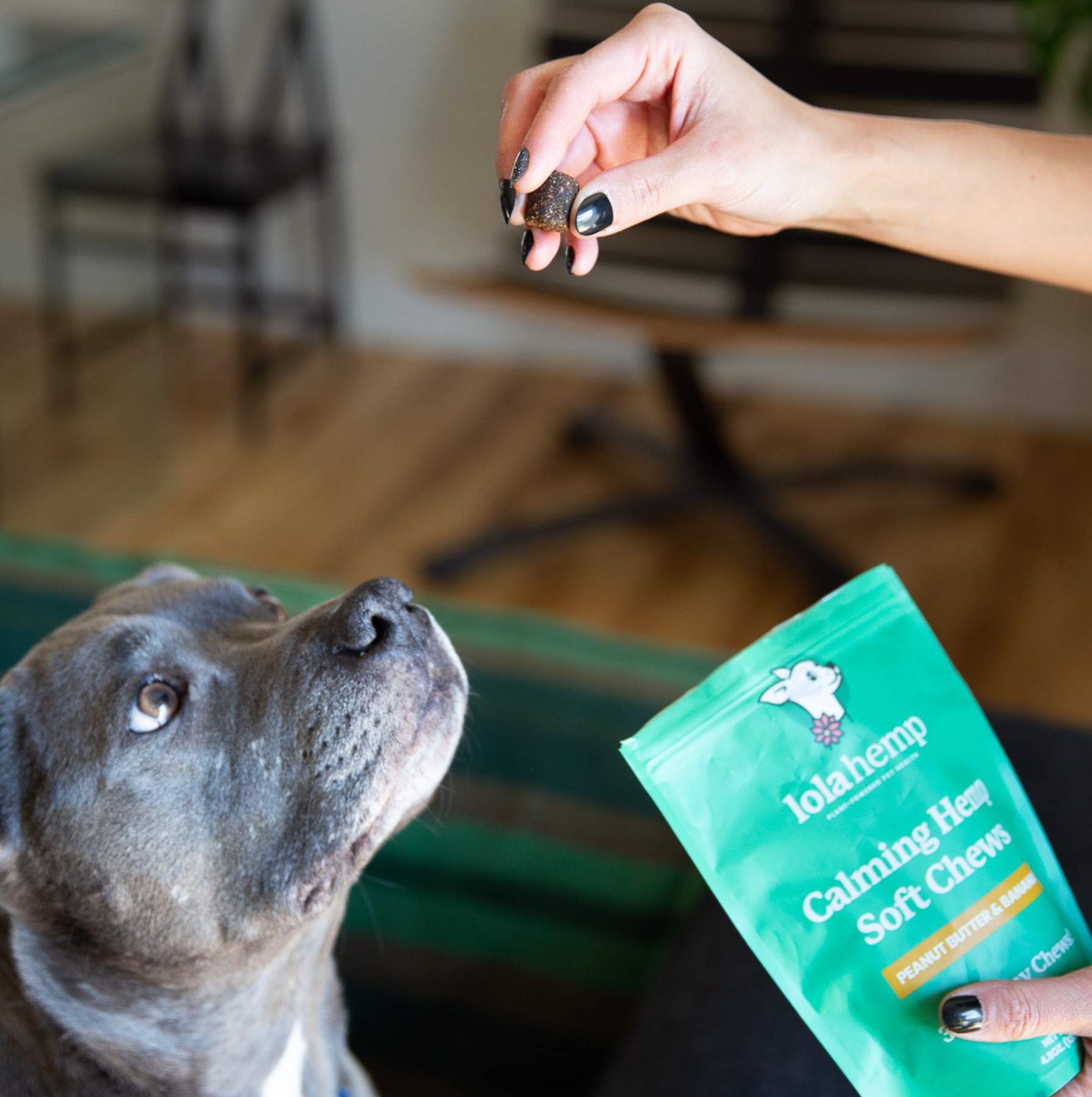Restlessness can be a troubling thing to see, especially if it's preventing your dog from getting a good night's sleep. You may be tempted to let it go and allow your dog to work things out themselves, or maybe you're concerned that your attempts to console your dog aren't helping.
The challenge is understanding why your dog is unable to relax and finally do something about it. This guide explores the key causes of nighttime restlessness and what can be done about it. From behavioral adjustments to natural calming supplements, there's a really good chance you'll be able to solve your dog's nighttime restlessness before too long.
Why Do Dogs Get Restless at Night?
Restlessness in dogs is a common issue that can stem from physical discomfort, emotional distress, or unmet needs. Whether it happens occasionally or becomes a recurring problem, restlessness is often a sign that something is off—whether it’s pain, anxiety, boredom, or changes in their routine.
Ultimately, your dog is trying to express their challenging feelings to you. Your dog's pacing or restlessness could be an attention-seeking behavior with the purpose of letting you know that something's not right.
Dogs rely on consistency and comfort, so disruptions to their environment, health, or daily habits can make them uneasy. Understanding the root cause of their restlessness is key to helping them settle and feel more at ease, so let's look at the common root causes.
1. Discomfort or Pain Can Prevent Your Dog from Settling
Pain or discomfort is one of the most common reasons for nighttime restlessness in dogs. Joint pain, especially from conditions like arthritis, can make it difficult for dogs to find a comfortable sleeping position.
Digestive issues, such as gas or bloating, can also contribute to discomfort, preventing your dog from relaxing. Dogs suffering from chronic pain may have difficulty staying still, and this discomfort can worsen at night when they’re trying to rest.
What Can Be Done:
If you suspect your dog’s restlessness is due to pain, a visit to the vet is essential for an accurate diagnosis.
Treatment options might include pain medications, supplements with glucosamine for joint health, or changes to their bedding to offer more support. In some cases, dietary adjustments or a new feeding routine may also help alleviate digestive discomfort.
2. Anxiety or Stress Can Cause Nighttime Restlessness
Anxiety and stress are common culprits when it comes to nighttime restlessness. Dogs are creatures of habit, and anything that disrupts their routine—such as changes in their living situation, the absence of their owner, or loud noises—can make them feel anxious.
Separation anxiety, in particular, can lead to nighttime pacing, whining, or even destructive behavior. Loud sounds like thunderstorms or fireworks can trigger restlessness as well.
What Can Be Done:
Creating a calming environment for your dog can help alleviate anxiety. Offering a comforting, familiar space to sleep in, using calming products like pheromone diffusers or calming music, or providing a soft blanket with your scent can all make a difference.
If anxiety persists, consult your vet about potential treatments, such as behavioral therapy or anxiety-relieving medications.
3. Lack of Exercise Can Make It Hard for Your Dog to Relax
Dogs need physical activity to expend energy, and without enough exercise, they can become restless at night. A dog who hasn’t had sufficient physical or mental stimulation during the day might find it difficult to wind down. This restlessness often manifests as pacing, whining, or an inability to stay still at bedtime.
What Can Be Done:
Ensure your dog gets enough exercise during the day—this may include walks, playtime, or other activities that engage them physically and mentally. The amount of exercise depends on the dog's breed, age, and health, so tailor the activity to your dog’s specific needs.
A well-exercised dog is more likely to sleep soundly at night.
4. Dietary Issues Can Disrupt Your Dog’s Sleep
What and when your dog eats can affect their ability to settle at night. Eating too late in the evening can result in digestive discomfort or increased bathroom needs during the night.
Food sensitivities or intolerances might also cause gastrointestinal upset that keeps your dog from resting peacefully. Additionally, certain ingredients, such as excessive fat or sugar, could contribute to hyperactivity or an upset stomach.
What Can Be Done:
Try feeding your dog earlier in the evening to give their stomach time to settle before bedtime.
If you suspect food sensitivities, consider consulting your vet about an elimination diet or switching to a more easily digestible food. Also, avoid feeding high-fat or overly rich foods close to bedtime to prevent digestive issues.
5. Cognitive Decline Can Cause "Sundowning" in Senior Dogs
Just like humans, dogs can experience cognitive decline as they age, a condition sometimes referred to as canine cognitive dysfunction (CCD), which is akin to dementia.
Dogs with CCD often experience confusion, anxiety, and disrupted sleep patterns, particularly at night. This phenomenon, sometimes called "sundowning," can lead to your dog being restless, confused, or disoriented as evening approaches.
What Can Be Done:
If you suspect your dog is experiencing cognitive dysfunction, talk to your vet about cognitive health supplements or medications designed to support brain function. Creating a consistent daily routine, minimizing changes in their environment, and providing extra comfort during the night can also help alleviate symptoms.
Conclusion
If your dog's restlessness persists, some of the causes & solutions listed above should provide support, but they're not guaranteed to. Be sure to contact your veterinarian to properly diagnose the underlying issue and get your dog back to their peaceful nighttime self.
Note that dogs will occasionally get disturbed by something and remain restless for a night. Lasting restlessness, especially when it's only at night, can typically be attributed to something specific. So, take note of your dog's behaviors and relay that information to your veterinarian.
Frequently Asked Questions About Dog Restlessness at Night
Why is my dog restless at night all of a sudden?
Sudden nighttime restlessness may result from pain, anxiety, digestive upset, or environmental changes. Observing patterns can help identify the underlying cause.
Can lack of exercise cause nighttime restlessness in dogs?
Yes. Dogs that don’t get enough exercise or mental stimulation during the day may struggle to relax and sleep soundly at night.
What can I give my dog to help them sleep better?
Natural calming aids, like CBD or melatonin formulated for dogs, may help. Always check with your veterinarian before giving supplements or medications.
How can I calm my anxious dog at night?
Provide a consistent bedtime routine, a quiet environment, and familiar scents or bedding. Calming music or pheromone diffusers can also help reduce anxiety.
When should I see a vet about my dog’s restlessness?
If your dog’s restlessness is ongoing, worsens over time, or is accompanied by pain, confusion, or other behavioral changes, schedule a vet visit.










